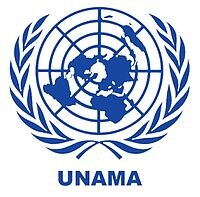About UNDP Afghanistan - Kabul
UNDP Afghanistan - Kabul: Empowering Communities and Building a Better Future
UNDP (United Nations Development Programme) has been working in Afghanistan since 1966, with the aim of promoting sustainable development and reducing poverty. The organization works in close partnership with the government, civil society, and other national and international partners to achieve its goals.
Afghanistan is a country that has faced numerous challenges over the years, including conflict, political instability, natural disasters, and economic hardship. Despite these challenges, UNDP remains committed to supporting the Afghan people in their efforts to build a better future for themselves and their communities.
One of UNDP's key areas of focus in Afghanistan is promoting inclusive growth and sustainable development. This involves working with local communities to identify their needs and priorities, as well as supporting initiatives that promote economic growth while protecting the environment.
Another important area of work for UNDP is promoting good governance and strengthening institutions. This includes supporting efforts to improve public service delivery at all levels of government, as well as promoting transparency and accountability in decision-making processes.
In addition to these core areas of work, UNDP also supports initiatives aimed at improving access to basic services such as healthcare and education. The organization recognizes that these services are essential for building strong communities that can thrive over the long term.
Overall, UNDP's work in Afghanistan is guided by a commitment to empowering communities and building resilience. By working closely with local partners on initiatives that address key development challenges facing Afghan society today – from poverty reduction to environmental sustainability – UNDP is helping lay the foundation for a brighter future for all Afghans.
In conclusion
UNDP Afghanistan - Kabul has been making significant contributions towards sustainable development since 1966 by partnering with various stakeholders such as government agencies civil societies among others. Their focus on inclusive growth through community empowerment coupled with good governance practices have helped them make an impact on various sectors such as healthcare education among others which are essential components towards achieving long-term success within any community or nation-state.



